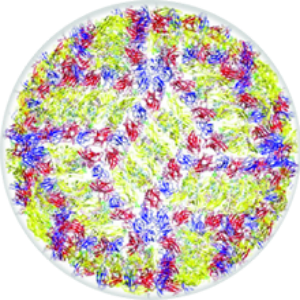Exploring the Frontiers of COVID-19 Prevention and Treatment

The global battle against the COVID-19 pandemic, caused by the novel coronavirus SARS-CoV-2, has tested the limits of global public health. Across the globe, scientists and researchers have displayed unwavering dedication, resulting in remarkable progress in various realms of COVID-19 research and treatment. This blog post will delve into three pivotal areas of study: the optimization of SARS-CoV-2 vaccine formulations, SARS-CoV-2 neutralization assays, and the innovative use of fusion peptides for SARS-CoV-2 treatment.
At the forefront of the fight against COVID-19 lies vaccine development. Researchers have been diligently working on formulation optimization for SARS-CoV-2 vaccines to enhance their effectiveness and safety. This intricate process involves striking a delicate balance between components that stimulate a robust immune response while ensuring the vaccine's safety for widespread use.
Formulation optimization encompasses the study of various vaccine delivery methods, adjuvants, and storage conditions. These elements are pivotal in determining the efficacy and stability of the vaccine, especially in the face of evolving viral variants. By continually refining vaccine formulations, scientists aim to create vaccines that provide enduring immunity and resilience against diverse SARS-CoV-2 strains.
Comprehensive comprehension of the human immune system's response to SARS-CoV-2 is paramount in developing effective treatments and vaccines. Scientists have delved deep into research, employing SARS-CoV-2 neutralization assays—a method crucial in gauging antibodies' ability to neutralize the virus. This assay plays a pivotal role in assessing potential therapies and vaccines' effectiveness.
Results from neutralization assays empower researchers to decipher how antibodies generated by the human body counter the virus. This knowledge is instrumental in crafting targeted treatment methodologies and deepens our understanding of immunity against COVID-19.
Prominent among the avenues of post-infection COVID-19 treatment is the realm of fusion peptides—a small yet significant portion of the SARS-CoV-2 virus responsible for its entry into human cells. Scientists are actively exploring the potential of fusion peptides as antiviral drug targets. By obstructing the action of fusion peptides, researchers aim to thwart the virus from infiltrating human cells, effectively arresting the infection process.
The development of fusion peptides for SARS-CoV-2 treatment signifies a monumental stride in the battle against COVID-19. This approach not only promises viable treatment for already infected patients but also lays the groundwork for future antiviral drug development.
In conclusion, the ongoing research on SARS-CoV-2 neutralization assays, fusion peptide-based treatment methods, and the optimization of SARS-CoV-2 vaccine formulations epitomizes the resilience and determination of the global scientific community. These breakthroughs not only enrich our understanding of COVID-19 but also pave the way for innovative treatments and effective vaccines. As humanity continues to navigate this uncharted territory, the collaborative efforts of scientists and researchers worldwide provide a beacon of hope, illuminating the path toward a brighter, healthier future.


